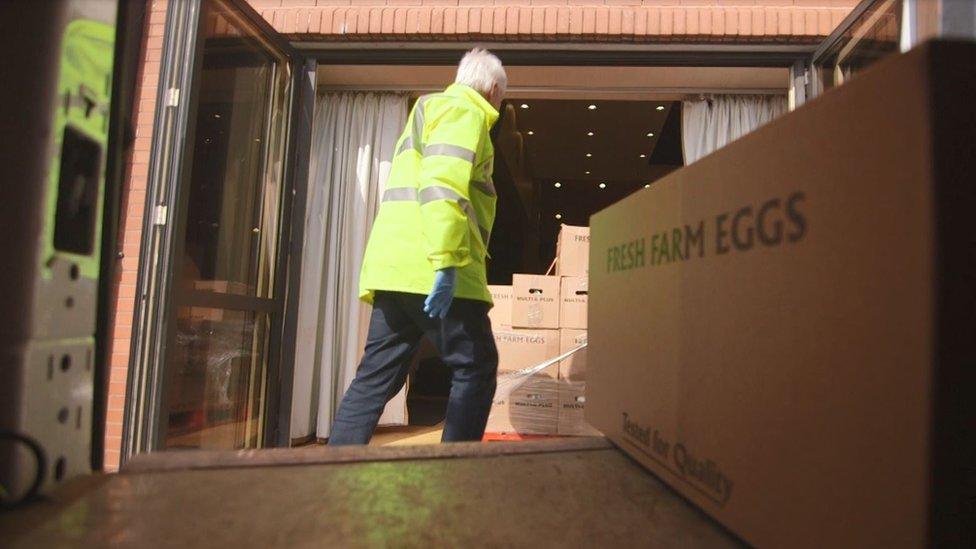Coronavirus: Food bank need for NI children 'at historic level'
- Published
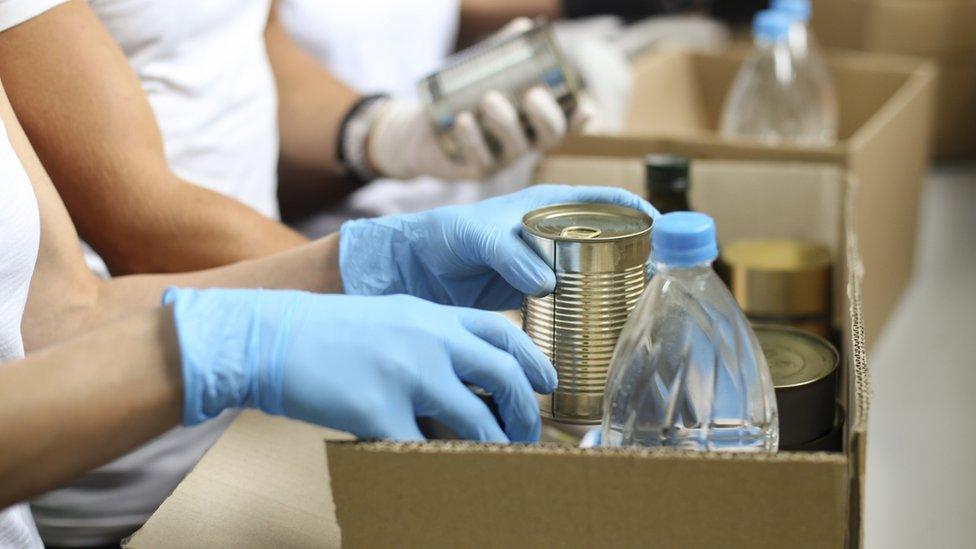
Food bank parcel deliveries rose 75% in Northern Ireland last year, says one food bank network
More than 31,000 food parcels were provided to children in Northern Ireland between April 2020 and March 2021, according to the UK's largest food bank network.
The Trussell Trust charity said it provided 78,827 parcels in total to children and adults last year.
That is a 75% rise on 2019-20 figures.
The largest numbers of food parcels were distributed in the Derry City and Strabane and Belfast City council areas.
However the Trussell Trust said as the figures only relate to food banks in its network - the scale of food bank use overall is likely to be higher.
The trust operated 36 distribution centres across Northern Ireland in 2020-21.
There are many other independent food banks across Northern Ireland operated by community and church organisations, for example.
Some councils and the Department for Communities have also distributed food parcels over the past year.
Figures just released by the Trussell Trust - which the UK's largest network - show it gave out a record 2.5 million emergency food parcels in the UK in 2020-21.
The trust said demand across the UK rose by a third as the pandemic hit many family incomes.
It provided over 2.5 million food parcels across the UK in 2020-21, up from 1.9 million in 2019-20.
'Historic levels of need'
In Northern Ireland, the trust provided 45,134 food parcels in 2019-20 but that rose to 78,827 parcels in 2020-21.
Almost 48,000 food parcels went to adults - up from 26,000 in 2019-20 - while just over 31,000 were given to children, about 12,000 more than the previous year.
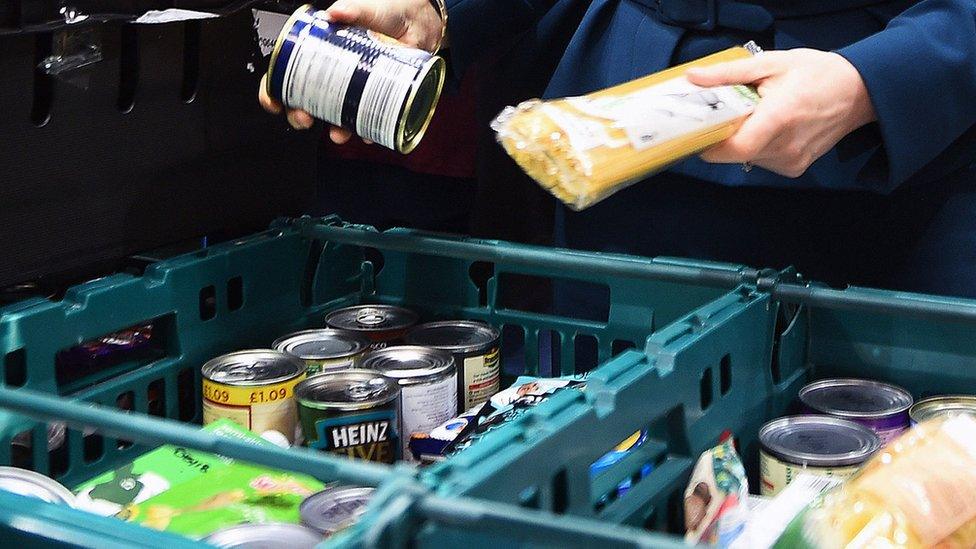
The Trussell Trust provided 78,827 parcels to adults and children in NI in the past year
The trust said that food banks across the UK had seen "historic levels of need" over the past year.
"Destitution and the resulting inability to afford essentials is the main reason for people needing to use a food bank," it said.
It said that could be down to issues like inadequate social security support, ill health, eviction or lack of family support.
However, the trust said hardship caused by the coronavirus pandemic was also likely to have had an effect.
Drained resources
"The ongoing crisis will have drained many people's financial and interpersonal resources and forced many to take on debt, meaning the pandemic will likely continue to affect people's ability to afford essentials - even as restrictions ease and the wider economy begins to recover," the trust said.
"Food banks in areas which have experienced larger increases in the rate of unemployment may have seen increased levels of need as a result."
It also said there was "some correlation between the extent or duration of lockdowns during a period and the number of parcels distributed, with the quarters that had fewer restrictions in general across the UK also seeing lower levels of need".
An emergency food parcel is typically enough for three days but during the pandemic some food banks also gave out seven-day parcels.
In November 2020, the Northern Ireland Executive agreed to pay for free school meals for eligible children during all school holidays until April 2022.
- Published1 January 2021
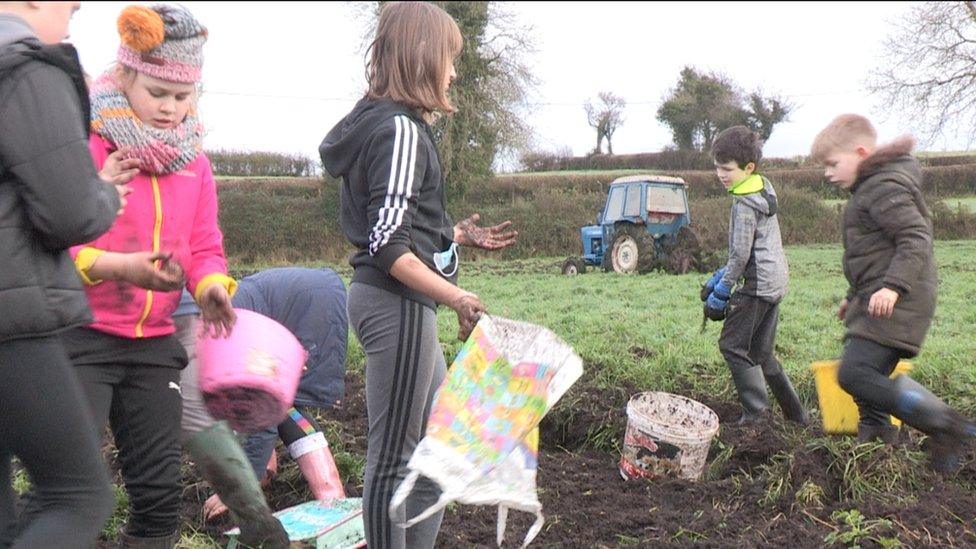
- Published7 November 2020
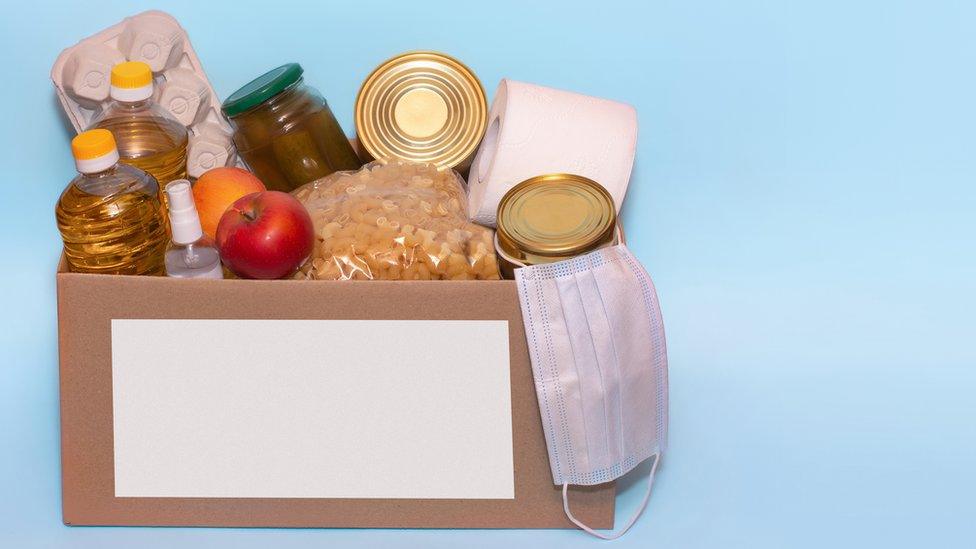
- Published7 April 2020
